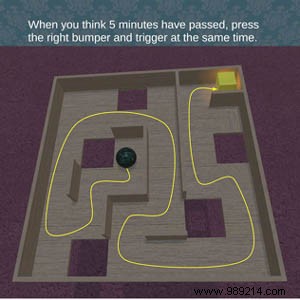A groundbreaking study from the University of California, Santa Cruz, reveals how virtual reality (VR) immersion slows our perception of time compared to real-world experiences. This time-compression effect holds promising applications in medicine.
VR enthusiasts often lose track of time during immersive sessions, especially in gaming. Research from UC Santa Cruz, published on May 3, 2021, in Timing & Time Perception, quantifies this phenomenon. Lead researcher Grayson Mullen first noticed it while testing a VR headset at a friend's home and designed an experiment with 41 participants. He developed a maze game playable both in VR and on a standard screen. Participants were divided into two groups, one starting with VR and the other with the screen version.
The sole instruction: pause when they believed five minutes had passed. Results showed that those starting in VR played 72.6 seconds longer than the screen starters, confirming time compression. Notably, the effect only appeared in VR-first players.

In 2011, Duke University researchers observed similar time compression in chemotherapy patients, but focused on diagnosis-related differences. This newer study directly compares VR and screen play, proving the effect is unique to virtual reality. Such findings suggest VR could ease patient anxiety during lengthy procedures by making them feel shorter through distraction and altered time sense.